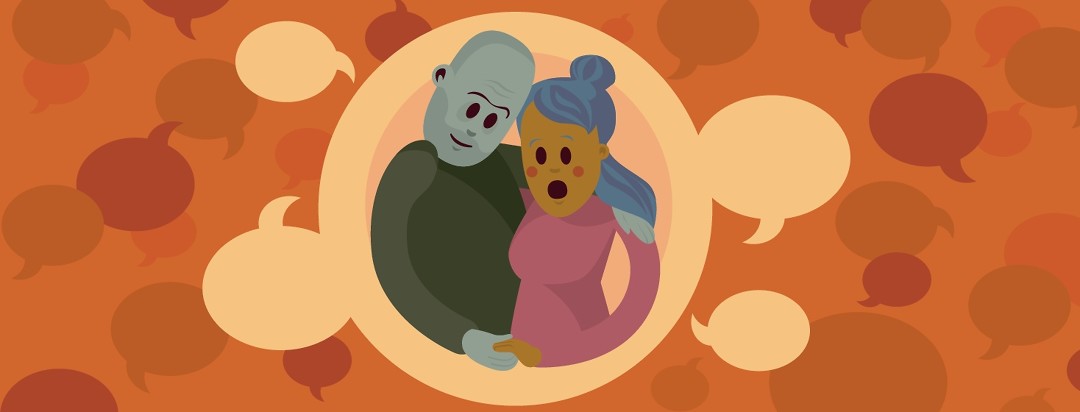How to Talk to Your Partner about Endometriosis
Endometriosis is not a very well understood disease. When doctors don’t even really understand it, how do we have any hope in hell of explaining it to our partners?
Endometriosis affects everyone differently
Endometriosis is not a disease with specifically defined symptoms. My symptoms started as heavy, painful periods, and then expanded to include general pelvic pain and back pain. Chronic fatigue came later, as well as depression (although I never know whether the depression was a result of the endometriosis, the fact that I was in pain all the time, or the pill). But it was certainly a result of the endometriosis, whether directly or indirectly. Because of this, endometriosis does not have an easy explanation, which makes talking to your partner about it more difficult.
Explain YOUR endometriosis
My husband likes explanations and solutions. I think he is a "typical man" in that respect. He wanted the doctor to explain exactly how endometriosis develops, what can be done to solve it and what symptoms I would experience. To which the answers were, "I’m not sure", "It depends", and "It depends". Consequently, he had to rely on me to explain what endometriosis did to me. And that is how it should be. Because it’s different for everyone, you can provide a short explanation of what endometriosis is (the growth of uterine-like cells outside of the uterus), but it is better to concentrate on what this means to you personally. Your experience with endometriosis is unique to you, so focus on how it affects you.
Don’t sugar-coat it
Your partner should be your main point of support, and they can’t support you if they don’t know what is going on. We are not used to talking about menstruation openly and in graphic detail with others, whether they be our partners or friends. But, in the case of how endometriosis affects you, you need to be open and honest. Are you bleeding profusely during your period? Does your uterus feel like it is being stabbed by knives repeatedly? Tell your partner that. I always tried to “spare” my husband the details, and as a result, he never supported me as well as I would have liked, and as well as he could have. I short-changed myself by not wanting to upset him, which is a silly thing to do. Your partner should be there for you. They should want to help you and make life better for you, but they can’t do that if they don’t have all the details.
Not period-specific
It's also important to bust the myth that endometriosis only affects you during your period. Endometriosis is an autoimmune disease, which means that your body is constantly fighting it. This takes its toll on your body, which is why most people with endometriosis are chronically tired. Depending on where the endometriosis is located, you can also suffer from pain during urination, lower back pain, pelvic pain, or pain in your legs. Some people may suffer pain only during your period, but most people with endometriosis suffer pain on a daily basis. It’s important to stress this to your partner so they know the extent of the effect of endometriosis on your life.
Endometriosis is part of who you are
Endometriosis is a chronic illness, which can often be debilitating. There is no need to be all dramatic about it, but endometriosis is going to affect the quality of your life. There will be days when you can’t do anything, but lay in bed, curled around a hot water bottle. There will be days when even the strongest painkiller can’t take the edge of your pain. Your partner needs to know this about you, so they can support you in any way they can. But while endometriosis is part of who you are, it does not have to define you. You can still enjoy life, and you still are of value to the world in general, and to your partner in particular.
Community Poll
Have you told your employer about your endometriosis diagnosis?

Join the conversation